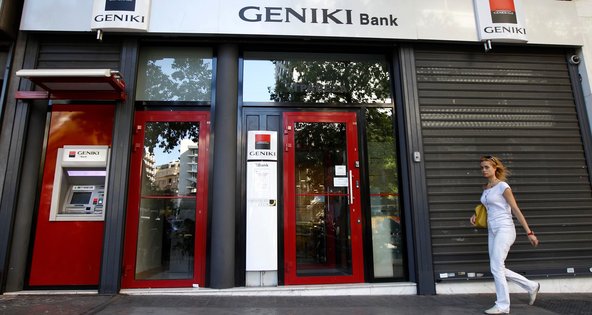Politicians, business executives and bankers are being raked through the headlines or incarcerated in a white-collar crackdown as the Greek government goes after people suspected of tax dodging. Those under questioning include the former finance minister George Papaconstantinou, in a highly charged parliamentary investigation into his handling of a list of Greeks with foreign bank accounts.
“Why do you think they are catching all these people?” Mr. Papaconstantinou said in a recent interview, in the suffer-no-fools manner that defined his two years as finance minister until the current government took power last June. “Because we changed the laws to allow the government to do this.”
But those changed laws, and the populist pursuit of supposed deadbeat fat cats, have yielded little in additional tax revenue.
Tax evasion lies at the heart of the Greek financial collapse, which has resulted in international bailout loans exceeding 205 billion euros, or $266 billion, the size of Greece’s depressed economy. In fact, Greece’s international creditors have made revamping its notoriously lax tax system a primary condition for any additional bailout financing.
But even after an overhaul of Greece’s tax collection apparatus — and a politically charged campaign to pursue delinquents — government officials have collected only a tiny fraction of what is owed and potentially collectible.
Rather than capture a lot of extra money, the crusade seems mainly to have captured prominent quarry. The net cast by newly empowered prosecutors has snared the former mayor of Salonika, the leader of the Greek national statistical agency and several former cabinet members.
Lawyers and tax officials estimate that hundreds of people have been locked up in the last year, suspected of tax evasion. Under the new laws, someone who owes the government more than 10,000 euros in taxes can be arrested on the spot and given the choice between paying up or being put behind bars. While held, the suspect can wait as long as 18 months before the prosecutor decides on a formal charge.
Despite those efforts, of the estimated 13 billion euros that government officials say is owed by Greece’s 1,500 biggest tax debtors, only about 19 million euros has been collected in the last two and a half years.
Among the few to benefit from the crackdown have been criminal defense lawyers specializing in tax law. Among them is Michalis A. Dimitrakopoulos, who represents many of the top political and business figures under government investigation or behind bars. His clients include the daughter and the former wife of Akis Tsohatzopoulos, a former defense minister and Pasok party official, all of whom are on trial on charges of money laundering and taking kickbacks.
Mr. Dimitrakopoulos, who proudly shows visitors to his office a wall covered with framed clippings of his courtroom exploits, says business has never been better. But he also says he has clients with many billions of euros overseas who will never bring their money back to Greece as long as — as he contends — killers have better legal rights than tax offenders.
By any measure, that is hyperbole.
Legal specialists note, for example, that Mr. Papaconstantinou, the former finance minister, is awaiting the outcome of the parliamentary inquiry in his case from the comfort of his suburban Athens home. They say it is unlikely he will ever serve time.
Mr. Papaconstantinou declined to discuss the allegations against him: that he doctored the so-called Lagarde list, named for Christine Lagarde. Ms. Lagarde, now managing director of the International Monetary Fund, was the French finance minister in 2010 when she gave Mr. Papaconstantinou a computer disk containing the names of Greeks who had Swiss accounts with HSBC Bank. The file had been stolen by a French former employee of the bank and ended up in the hands of France’s government.
Article source: http://www.nytimes.com/2013/05/13/business/global/greek-tax-crackdown-yields-little-revenue.html?partner=rss&emc=rss
